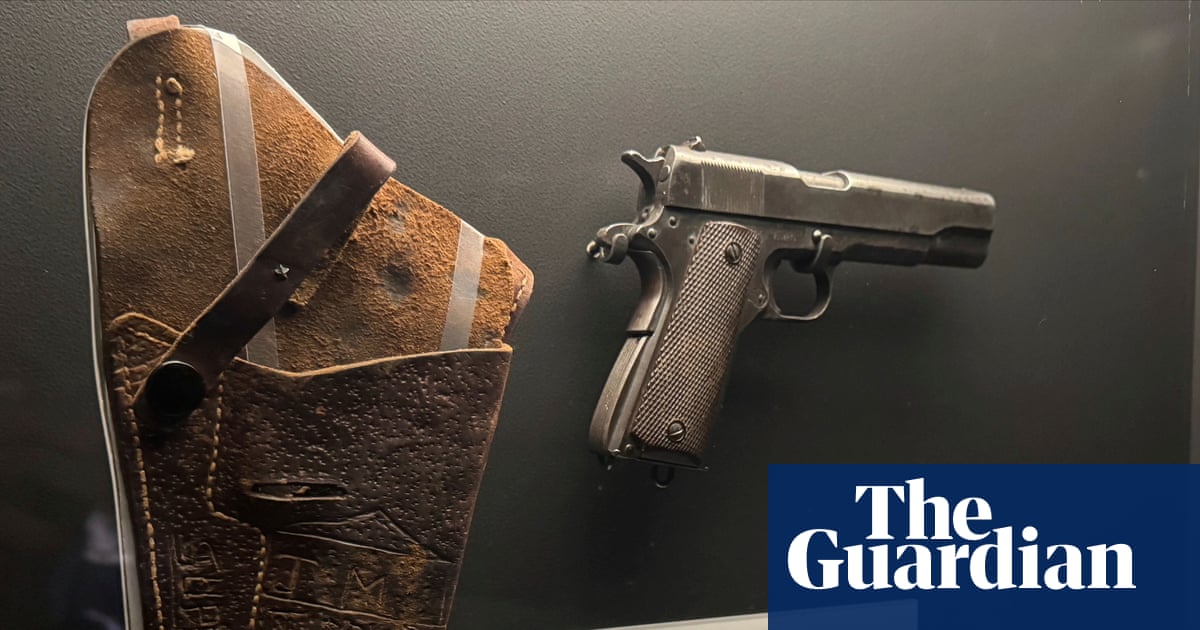
"The gun used in the lynching of 14-year-old Emmett Till is now on display for the public to see, 70 years after the killing. The Mississippi Department of Archives and History unveiled the .45-caliber pistol and its holster during a news conference on Thursday, which is the 70th anniversary of Till's murder. The gun belonged to John William JW Milam who, alongside Roy Bryant, abducted Till from his great-uncle's home on 28 August 1955."
"The white men tortured and killed Till after the teenager was accused of whistling at a white woman in a rural Mississippi grocery store. Till's body was later found in the Tallahatchie River. Bryant and Milam were charged with Till's murder, but they were acquitted by an all-white-male jury. Deborah Watts, the co-founder and executive director of the Emmett Till Legacy Foundation and Till's cousin, said she has mixed emotions about the weapon being on display."
"According to a press release from MDAH, Wheeler Parker, another of Till's cousins, who was there when Till was kidnapped, is grateful to see the artifacts in a museum for the public to see. I think it's good because it brings closure, Parker was quoted as saying. I hope you guys can find the ring and cotton gin. Thank you for doing this. The gun was previously in the possession of a family in the Mississippi Delta, who donated it on the condition of anonymity."
The .45-caliber pistol and holster used in the 1955 lynching of 14-year-old Emmett Till are now on public display at the Mississippi Civil Rights Museum. The weapon belonged to John William JW Milam, who with Roy Bryant abducted, tortured, and killed Till after an accusation in a rural grocery store. Till's body was found in the Tallahatchie River, and Bryant and Milam were later acquitted by an all-white-male jury. Family responses are mixed: a cousin expressed discomfort with displaying the murder weapon, while another relative called the exhibit a source of closure. The gun was donated anonymously and authenticated by its serial number.
Read at www.theguardian.com
Unable to calculate read time
Collection
[
|
...
]